Ever pick up an apple at the supermarket, see that it is slightly misshapen or bruised, and choose a different one? If this sounds familiar, you may be unknowingly contributing to the massive food waste issue around the world.
According to the U.S. Department of Agriculture, the U.S. discards one third of its food supply. The Natural Resources Defense Council claims that we might actually waste closer to 40% of our food supply. That’s pretty crazy, especially if you think about the 800 million starving people in the world. According to the Food and Agriculture Organization of the United Nations, 2.9 trillion pounds of food is wasted every year. If we salvaged that food, we would be able to feed every single one of those people more than twice over.
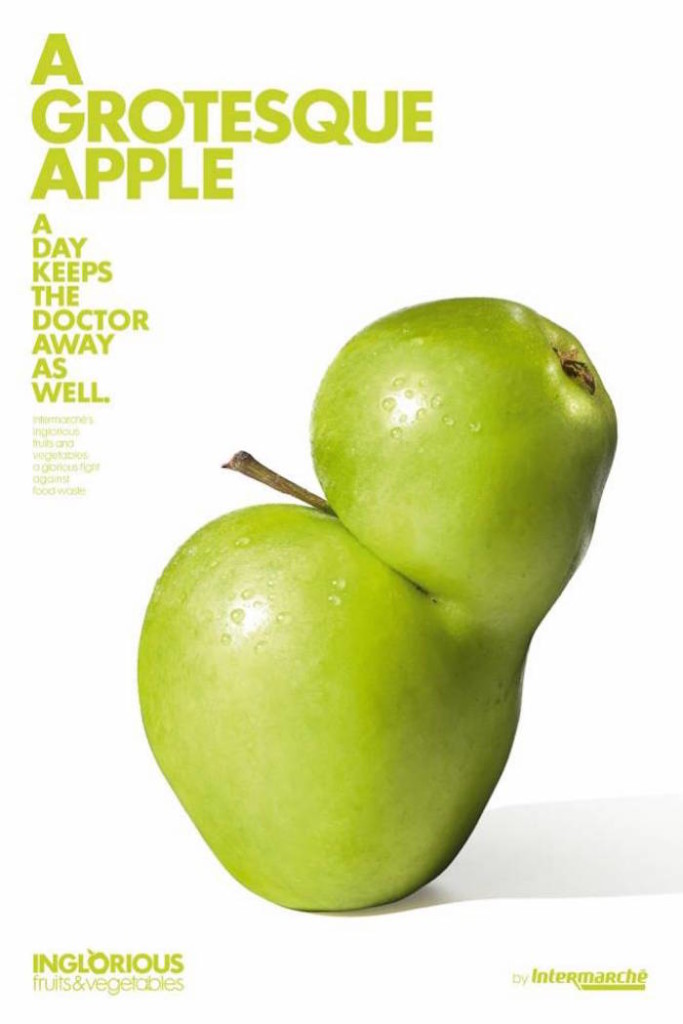
Photo courtesy of metro.co.uk
You might be wondering why we aren’t doing this. Well, produce that isn’t up to standards in the appearance department gets tossed into a landfill, even though these so-called “ugly foods” are actually perfectly safe and nutritious to eat. The only reason why it is not sold is because it’s… well, ugly.
Cucumbers that are slightly curved, tomatoes that are too wide to be sliced to fit onto a burger bun, apples that are slightly off-color, misshapen oranges – all of these foods get dumped. Strict cosmetic standards of supermarkets are to blame for this phenomenon, along with our obsession for perfection when it comes to anything from our own appearance to that of our food.
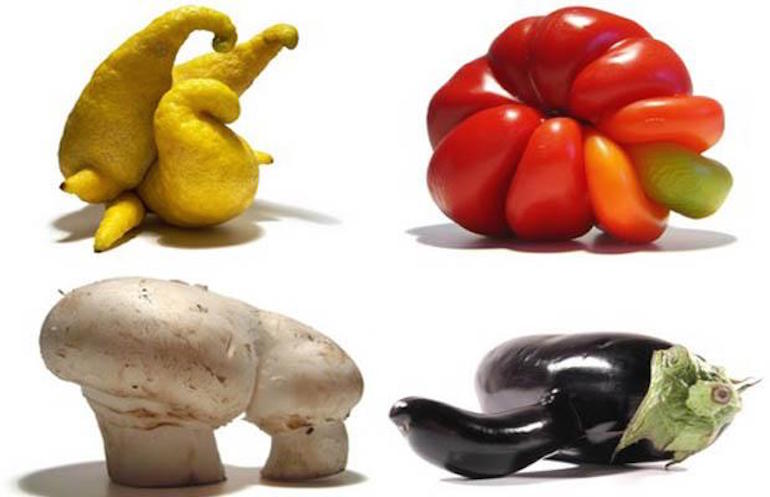
Photo courtesy of fandbnews.com
Food waste is not only detrimental to the starving people of the world, but it is highly destructive to the environment as well. Producing food that ends up being wasted squanders natural resources including water, fuel, fertilizers, pesticides, and seeds.
To put it into perspective, the production of the 133 billion pounds of food that is wasted each year in the U.S. uses more than 70 times the amount of oil lost in the Deep Water Horizon spill in the Gulf of Mexico. Let’s put it this way – if the world’s food waste were a country, it would be the third largest producer of greenhouse gasses in the world.
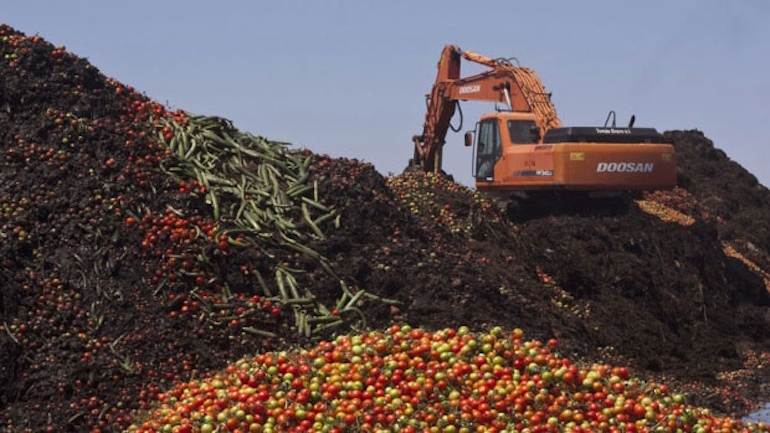
Photo courtesy of sustain.pata.org
Two U.S. startups, Maryland’s Healthy Harvest and Imperfect Produce, have been working to convince supermarket chains like Whole Foods to sell ugly produce. Thanks to their hard work, Whole Foods will now start selling ugly produce at several of its stores in Northern California this April, and the supermarket chain Giant Eagle will offer ugly produce at five of its Pittsburgh locations.
When farms cannot sell their imperfect produce, they can contact these startups rather than losing their entire yield. They can then sell their imperfect fruits and veggies at a discounted rate to recoup some of the costs associated with production. Imperfect Produce delivers these ugly foods to over 2,000 customers in the California Bay Area at discounted prices.
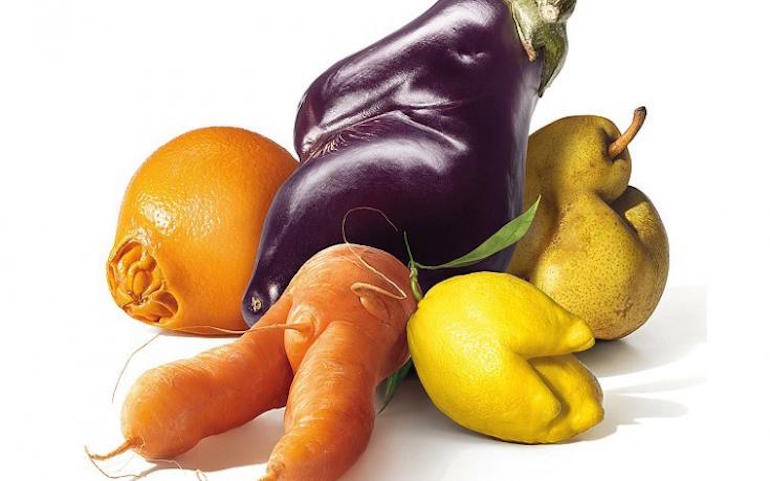
Photo courtesy of sierraclub.com
Maryland’s Hungry Harvest has a similar system, where ugly produce is packaged into boxes and delivered to customers cheaply. So far the startup has saved over 500,000 pounds of produce that would otherwise be thrown into a landfill. While this is only a small chunk of the 2.9 trillion pounds of food wasted in the world per year, it is certainly a great start.
Word about ugly food has caught on abroad, too. In France, the third largest supermarket chain, Intermarché, launched a campaign called Inglorious Fruits and Vegetables to dedicate an entire aisle to ugly fruits and veggies. Intermarché sells these disfigured items at a 30% discount and has created posters and advertisements featuring malformed produce to explain how eating these foods helps combat food waste. The campaign has been hugely successful, increasing supermarket traffic by 24%.
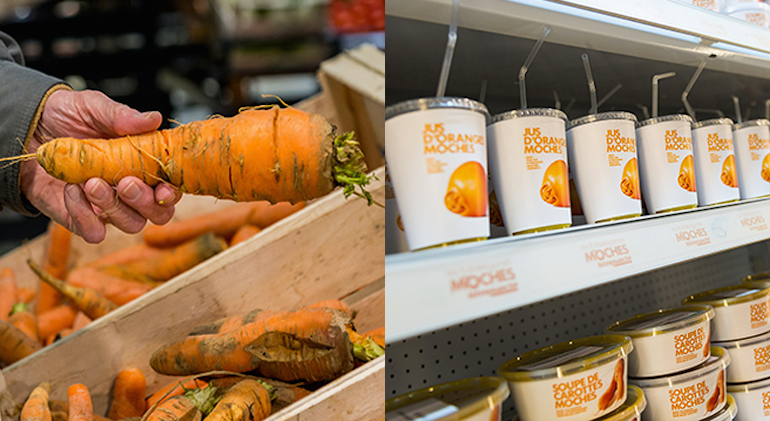
Photo courtesy of springwise.com
To push the ugly food trend even further, Intermarché launched a line of soups and juices made exclusively with Inglorious Fruits and Vegetables, complete with beautiful packaging that features uniquely disfigured fruits and veggies. This brilliantly executed campaign proves that funny-looking produce can taste just as good as the perfect looking produce we are accustomed to seeing in supermarkets. Looks like ugly food might just be the new kale, after all.


